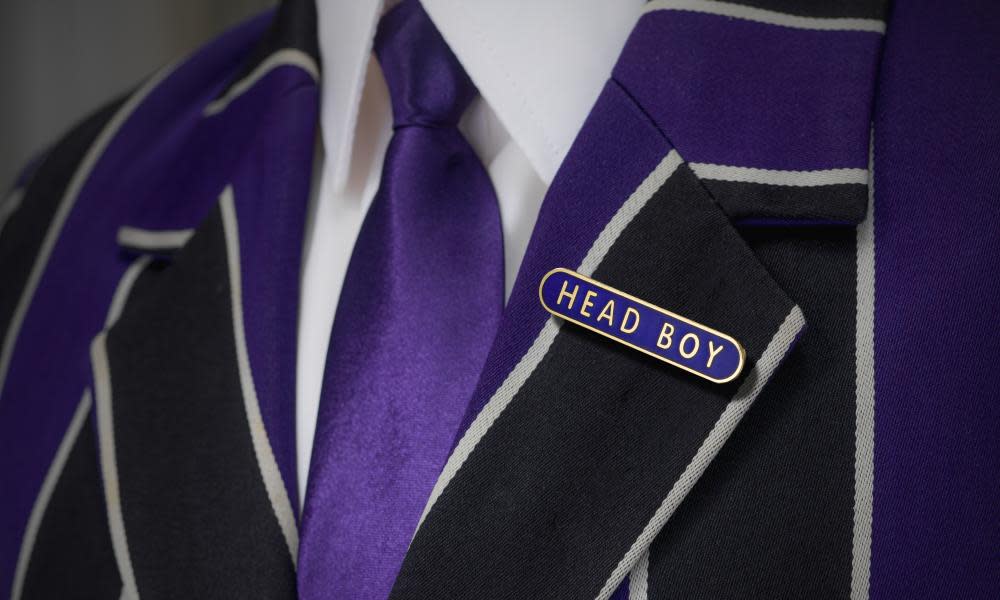Is it time to get rid of head girls and boys?

Head boys and girls sound like a Harry Potter creation, but most secondary schools in Britain have some version of the role.
Twenty years ago, when I was selected as head girl at Fairfield High in Widnes, a mini scandal broke when the head announced it would be decided by a pupil vote instead of senior leaders. Teachers worried that this would lead to distracting campaigns. But they forgot we were teenagers, and therefore lazy. Mostly, I won because no one else wanted to spend their evenings showing potential new parents around.
More changes are now afoot. The increasing numbers of young people identifying as non-binary or trans are making make the roles difficult to sustain. It is simply unfair that one must fit into a neat binary box to attain your school’s top accolades.
Headteacher Liz Coffey, who has scrapped the roles at Guernsey Grammar School, also felt the labels implied that gender was why people got the position, when it ought to go to the “best person” for a job. After all, we don’t use “policeman” or “actress” any more. Switching to school captain, or another neutral phrase, makes sense.
But, before we start burning our head girl badges, beware the downside. Guernsey Grammar’s new structure elects five pupils on to a leadership team, led by a chair and vice-chair. Predictably, two boys took the top roles. The other three went to girls.
Reams of research shows a preference for male candidates in leadership positions. If schools allow pupils to vote for captains, and gender balance is not baked into the system, there is a strong possibility boys will dominate.
Alternatively, if teachers select captains, then the higher academic achievements of girls could swing things in their favour, which isn’t any better for balance, either. And doesn’t help the perpetually ignored working-class boys in our schools.
All of which leads me to wonder whether the real problem is the distorting effect of imbuing two teenagers with such power. In the US schools system, responsibilities are spread around: sports captains, class presidents, prom chair, yearbook editor. In the UK, we are sniffy about this sort of “prizes for everyone” approach. But from the vantage point of a non-binary future – in which we value people for what they do, rather than for lazy generic labels – it might just be the best approach.

 Yahoo News
Yahoo News 
